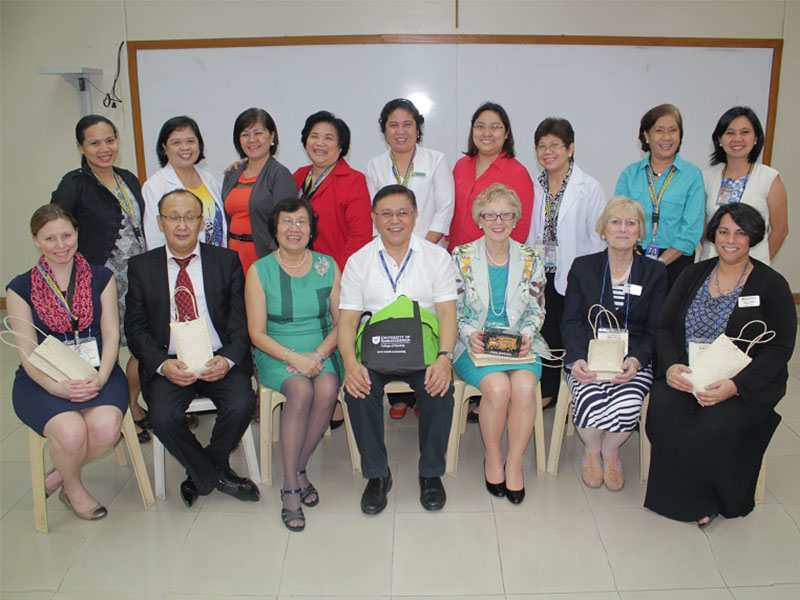
Robotics Bring Four Countries Together in Nursing Education
Four countries came together the week of January 26th over a shared passion to use robotics in healthcare education.
The Grand Challenge Canada: Stars in Global Health meeting brought together innovators who are using Remote Presence technology in the Philippines, Canada, Siberia and United States.
This meeting was the second gathering, as part of the implementation of the Grand Challenge Canada: Stars in Global Health funding received by the University of Saskatchewan’s College of Nursing and International Centre for Northern Governance & Development (ICNGD). The first meeting was held in Saskatoon in March 2014 as an invitational remote presence forum. The second meeting held in Manila, Philippines, built on the relationships formed at the forum in March 2014. Bringing these individuals together from around the world, demonstrated the global connection in nursing education, specific to improving social determinants of health in rural and remote communities.
The week of January 26th also served as the official launch of robotics in nursing education in the Philippines and Siberia. The Grand Challenges award provided funding to purchase a remote presence RP-Xpress unit for the North Eastern Federal University (NEFU), College of Nursing in Yakutsk, Siberia and the University of the East: Ramon Magsaysay Memorial Medical Centre (UREMMMC) in Quezon City, Philippines. University of Saskatchewan College of Nursing Dean Dr. Lorna Butler presented the remote presence telementoring systems to the Deans of Nursing from both universities: Dr. Wilhelmina Zaragoza-Atos, UERMMMC and Dr. Nikolai Seminovich Diachkovski, NEFU. InTouch Health, a leader in RP technology, also connected from Santa Barbara, California during the launch event to provide the lab demonstrations. Simultaneously, the four countries successfully connected as the beginning of a global nursing education initiative.
The connections via the RP-Xpress will support shared learning, leading to student exchanges and the creation of an Innovative Learning Institute for Indigenous Health. The vision of the institute is to be global leaders in “putting health into place” for Indigenous people in rural and remote regions of the world. Using the RP-Xpress, communities of students and faculty will be linked to share expertise, knowledge and insights to address the challenges facing Indigenous people in achieving the best health and well-being. Creating interaction among global partners, from north to south, will enable learners to expand beyond traditional thinking and health practices via shared learning. The Innovative Learning Institute is designed to create a caring and stimulating learning environment that promotes active engagement in learning, leadership, critical thinking and encourages interprofessional collaboration for lifelong learning. The three universities are responsible to facilitate the development and use of innovation, creativity and self-direction for learners to become active agents of change in health care.
The intended outcome of this project is the application of Remote Presence to provide high quality, accessible education for nursing students to “learn where they live”. Students and professors will work together globally to address the social determinants of health experienced by Indigenous populations in locations where accessibility, remoteness and low economic status impact chronic disease management. Students will learn that nurses who are working in rural and remote regions face very similar health care challenges no matter which country they live in; therefore, letting them know they are not alone in addressing similar situations, but have experienced colleagues that previously were not connected to their classrooms or clinical settings they can call on.

